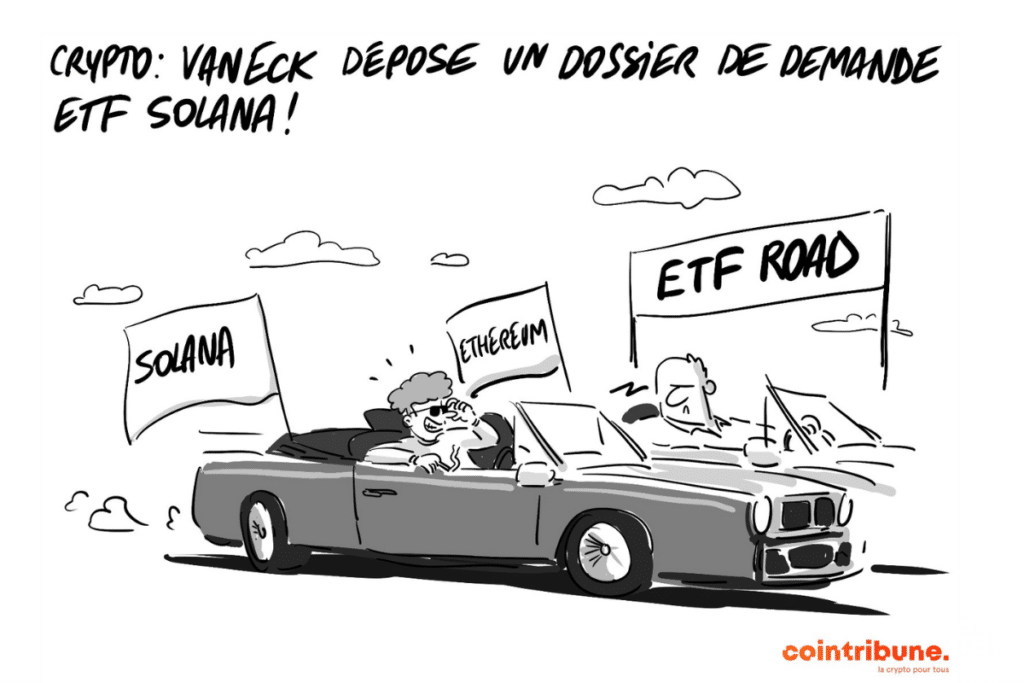Bitcoin, Binance, Ethereum, Solana and Ripple: The Biggest Crypto News of the Past Week
Between revolutionary announcements, technological evolutions, and regulatory turbulence, the crypto ecosystem continues to prove that it is both a land of limitless innovations and a battleground of regulatory and economic struggles. Here is a summary of the most notable news from the past week surrounding Bitcoin, Ethereum, Binance, Solana, and Ripple.
1 million addresses now hold at least 1 Bitcoin
Bitcoin reaches a major milestone with over one million addresses holding at least one BTC, according to IntoTheBlock. This trend indicates growing adoption and increased trust in Bitcoin as a store of value. The number of addresses holding a whole bitcoin, known as “wholecoiners,” has reached 1,010,777. This accumulation reflects sustained confidence despite market volatility. The scarcity of Bitcoin, limited to 21 million units, enhances its appeal as an investment asset. Institutional adoption, with companies and financial institutions accumulating BTC, reinforces the stability and credibility of Bitcoin. Currently, Bitcoin is trading around $61,640, with expectations of long-term continuous growth.
VanEck files for a Solana ETF
VanEck, the investment management company, has filed an application with the SEC to launch a Solana-based ETF, titled “VanEck Solana Trust”. This move follows the successful launch of VanEck’s Bitcoin ETF in Australia. If the Solana ETF is approved, it will track the spot price of Solana and be listed on the Cboe BZX exchange. The announcement of this application had an immediate positive impact on the market, causing the price of Solana (SOL) to rise by 6% to reach $148. This initiative could signal a growing trend towards diversifying crypto investment products offered to traditional investors, allowing them to gain exposure to cryptos without having to directly hold the assets. VanEck’s filing for a Solana ETF not only represents an advancement for Solana as a cryptocurrency but also for the entire sector, promoting greater institutional adoption and increasing recognition of cryptos as a legitimate asset class.
Ripple releases 1 billion XRP in July
Ripple plans to unlock 1 billion XRP on July 1, representing a market value of $470 million. This monthly unlocking process, in place since 2017, risks putting downward pressure on the price of XRP. Using two wallets, Ripple releases 500 million XRP each, distributed across several contracts, scheduled until January 2025. In June, Ripple sold 200 million XRP, marking the largest monthly sale in its history. This massive sale led to a 9.25% drop in the price of XRP, currently at $0.467. Investors must remain vigilant, as past unlockings have often negatively affected the price of XRP.
The specter of Mt. Gox looms over Bitcoin: JPMorgan predicts a stormy summer
Creditors of the former Mt. Gox exchange platform will start receiving their Bitcoin reimbursements from July, with approximately 142,000 bitcoins (estimated value of $9 billion) to be distributed between July and October. JPMorgan anticipates that the majority of these reimbursements will occur in July, potentially triggering massive sales of Bitcoin on the market. Creditors, having waited nearly 10 years, might be tempted to quickly sell their holdings, which could exert significant selling pressure and weigh on the price of BTC and other cryptos. Despite possible short-term volatility, JPMorgan expects a rebound in August after the initial wave of sales. Meanwhile, other reimbursements in the crypto ecosystem, such as from Gemini Earn and FTX, add to market complexity, making the coming months particularly turbulent for cryptos.
Ethereum gas fees plummet
Yesterday, June 30, 2024, Ethereum recorded its lowest gas fees since 2016, with an average of 3 Gwei (approximately $0.14), a historically low level despite high transactional activity. This decrease is attributed to technological improvements such as increased efficiency of layer 1, integration of layer 2 volumes, and the introduction of “blob transactions” via EIP-4844. This reduction in fees could attract new developers and users to Ethereum, reviving its appeal as a platform for dApps and daily transactions. However, this decrease raises questions about network security, as high fees have historically protected against DDoS attacks. Additionally, a reduction in burnt fees makes Ethereum less deflationary, influencing supply and demand dynamics. While this news is positive for users in terms of costs, it requires continuous vigilance on security and economic sustainability issues.
That’s the gist of this week’s highlights. But if you want a more detailed recap and in-depth analyses directly in your inbox, don’t hesitate to subscribe to our weekly newsletter.


![Ethereum [ETH] Surges in dApp Volume: Potential for Price Increase Amid Network Activity Shifts](https://i0.wp.com/en.coinotag.com/wp-content/uploads/2024/05/cryptocurrencies-8.webp?fit=1792%2C1024&%23038;quality=70&%23038;ssl=1)



